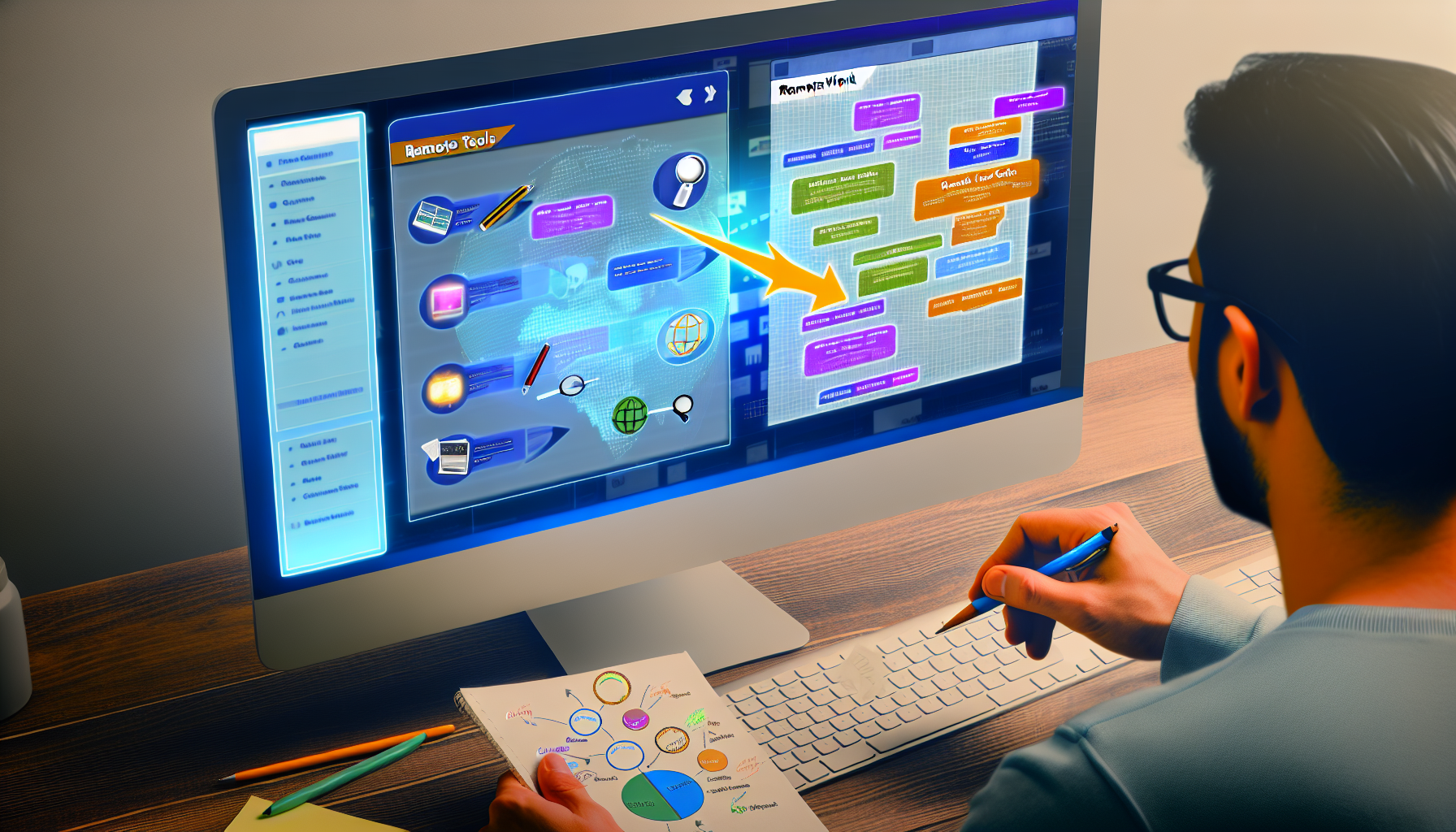Choosing the Right Remote Work Tools for Your Needs
📈📱💼 With the world embracing the flexibility and convenience of remote work, finding the right tools to support this lifestyle has become essential. Whether you’re a digital nomad traveling the world or someone working from home, choosing the right tools can make or break your productivity and overall experience.
In today’s fast-paced, tech-driven world, the array of available tools can be overwhelming. How do you pick what’s best for you? Fear not! This guide will walk you through key considerations and tips to help you select the tools that fit your unique needs.
Key Takeaways:
- Identify your specific needs before seeking out tools.
- Consider ease of use and compatibility with your current setup.
- Evaluate cost and long-term benefits.
- Check reliability and security features.
- Look for user reviews and expert recommendations.
Identify Your Needs
The first step in choosing the right remote work tools is understanding what you need. Are you a writer looking for distraction-free writing tools? Or a project manager who needs robust collaboration software for team projects?
“Understanding your unique requirements is half the battle won,” says Jane Doe, a remote work consultant. Make a list of your essential functions and prioritize them. This list will serve as your north star when evaluating options.
Ease of Use and Compatibility
Choose tools that are intuitive and easily integrate into your current workflow. A beautiful, feature-rich application is useless if it’s too complicated or incompatible with other tools you use daily.
For instance, if you’re using a MacBook, tools optimized for macOS will offer better performance. Look for tools that scale with multiple devices to ensure seamless productivity. Slack, Trello, and Notion are excellent examples of user-friendly and versatile tools.
Evaluate Cost & Long-Term Benefits
Free tools can be tempting, but they might come with limitations that hinder productivity.
“Investing in quality tools is akin to investing in your productivity,” recommends John Smith, a software productivity expert. Consider both initial costs and long-term benefits. Premium features often justify the price with enhanced functionalities and better support.
Reliability and Security
When you’re working remotely, especially with sensitive data, reliability and security should be paramount. Tools like VPNs (Virtual Private Networks) and secure cloud services ensure your data stays safe. Assess the service’s uptime and read reviews on their security measures.
Here’s a quick comparison table to illustrate this point:
| Tool Name | Security Features | Uptime | Additional Benefits |
|---|---|---|---|
| Slack | End-to-End Encryption | 99.99% | Integrations with other productivity tools |
| Google Drive | Two-Factor Auth | 99.95% | High storage capacity |
| Zoom | AES 256-bit encryption | 99.9% | High-quality video conferencing |
| LastPass | Password Encryption | 99.91% | Streamlined password management |
Look for User Reviews and Expert Recommendations
Both user testimonials and expert reviews can provide invaluable insights into a tool’s functionality and reliability. Read reviews on trusted tech blogs or forums, and take note of any common praises or complaints. Joining online communities of remote workers can also provide recommendations based on firsthand experiences.
Living or Experiential Tips
- Trial Periods: Always take advantage of free trials before committing. This hands-on experience helps you evaluate if a tool truly meets your needs.
- Stay Organized: Create a digital toolkit folder where you keep all your essential applications and documents organized.
- Regular Updates: Keep an eye out for updates or new tools that might better serve you; the tech landscape evolves rapidly.
Choosing the right remote work tools requires a thoughtful approach to match your unique needs with the best available options. By prioritizing ease of use, compatibility, cost, reliability, and seeking input from real users, you can significantly enhance your remote work experience. Dive deeper into related resources or join online communities to keep your toolkit optimized.
Source Links:
- TechRadar – Best tools for remote work in 2023
- Forbes – How to choose remote work tools
- Data Security in Remote Work
FAQ
Q1: What are the absolute must-have tools for remote work?
A: Essential tools include a reliable communication platform (like Slack), a project management tool (such as Trello), secure cloud storage (like Google Drive), and robust cybersecurity measures (like a VPN and antivirus software).
Q2: How can I ensure the security of my data when working remotely?
A: Use tools with strong encryption, enable two-factor authentication, keep software updated, utilize a VPN, and never share sensitive information over unsecured networks.
Q3: Are free remote work tools good enough?
A: While many free tools offer excellent functionalities, they might have limitations. Evaluate if their limitations affect your productivity and consider premium options if they provide substantial value and enhanced features.
Remember, the right tools can transform your remote work experience from frustrating to fulfilling. Happy tool hunting! 🛠️🚀
